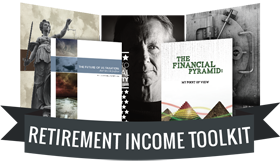There was a degree of uncertainty as to what he would recommend because of all the cross-currents out there in the economy and the investment markets. Essentially the markets were debating if Bernanke would endorse more economic stimulus or not. Below are the arguments for either:
– Additional stimulus is necessary because domestic economic data has softened recently, unemployment is too high and so far the stimulus has not caused an inflation problem
– Additional stimulus is not needed because the economy is still growing (albeit more slowly), “Operation Twist” stimulus is still in place and the stock and bond markets are doing well.
In his speech he gave us a bit of both. Bernanke did not endorse immediate actions to spur the economy in the form of new QE3 (quantitative easing part 3). But he did say the economic recovery is far from satisfactory and the unemployment situation is a “grave concern”. Bernanke also reiterated that he believes in stimulus policy to spur the economy when it is needed. Bottom-line, no stimulus was offered up last week, but there is a strong indication that if the economy does not improve soon some form of central bank stimulus is coming.
Remember, the markets have reacted positively towards Fed stimulus in the past. The Federal Reserve has two objectives, stable economic growth and controlled inflation. Watch the employment numbers coming out this Friday, if they’re weak the argument could become stronger to apply additional fiscal stimulus. There is an FOMC meeting September 12th where Bernanke could further enlighten us on his plans, stay tuned.
Speaking of central bank stimulus, we should keep our eye on what the European Central Bank (ECB) is planning. There is an ECB meeting September 6th and Mario Draghi (ECB President) has been posturing for Europe’s own brand of fiscal stimulus to jumpstart the flagging Eurozone economies. Watch the trend of the chart below, it highlights the 10 year Spanish bond yields and is a great indicator of investor faith in the Eurozone. If rates begin to fall for this troubled country this implies investor confidence in Europe is increasing.
